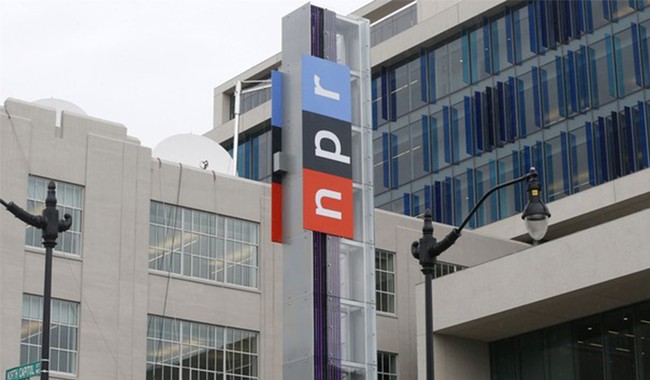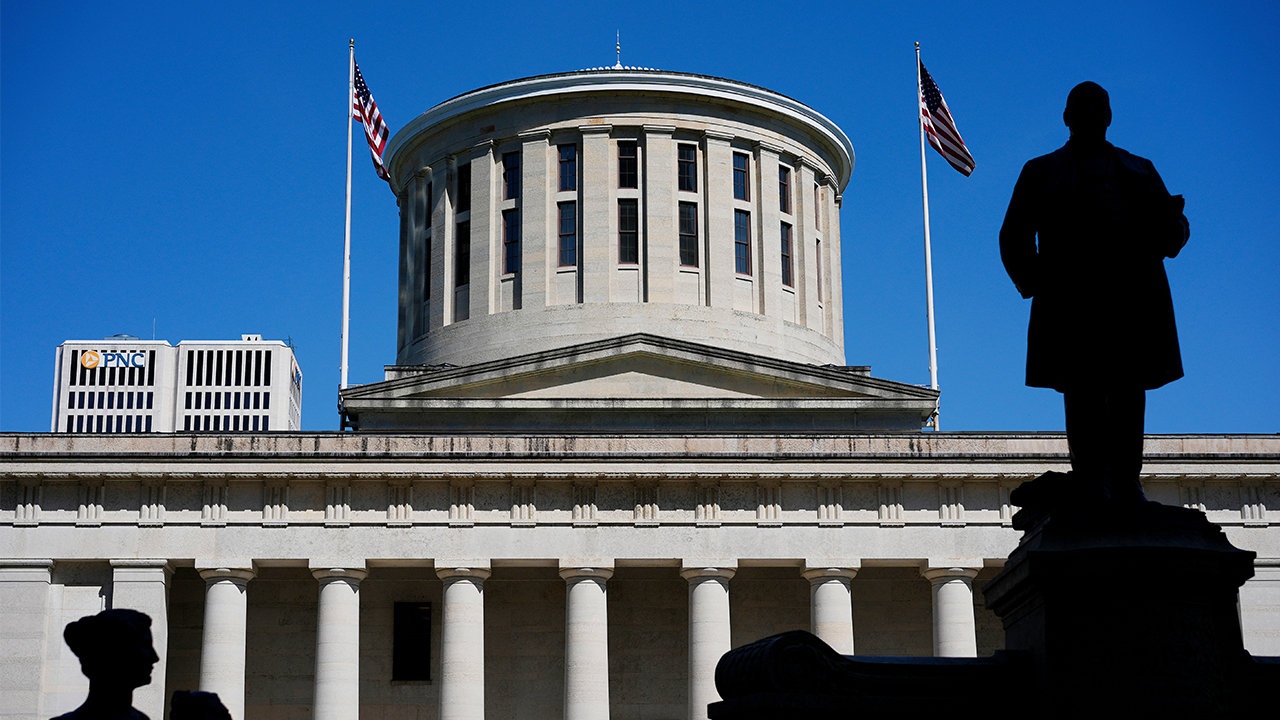The Trump administration effort to defund the Corporation for Public Broadcasting took another step today when President Trump asked congress to get involved in pulling back funds that have already been appropriated.
President Trump took yet another step Tuesday to place NPR and PBS at the center of his broader clash with major cultural institutions, formally asking Congress to take back the $1.1 billion it has set aside for all public broadcasters for the next two years.
A simple majority of lawmakers in each chamber must approve what’s technically known as a “rescission request” within 45 days for it to become law. With their slim leads in both the House and Senate, Republicans can afford just a few defections.
The CPB funding is just one small part of a larger effort to make cuts to funding identified by DOGE.
In a package compiled by the Office of Management and Budget, officials outlined 22 programs targeted by President Trump in executive orders and by DOGE. The bulk of the rollbacks — $8.3 billion — are aimed at foreign aid spending. The rest — $1.1 billion — would rescind funding for the Corporation for Public Broadcasting, which funds NPR and PBS…
“This rescissions package reflects many of DOGE’s findings and is one of the many legislative tools Republicans are using to restore fiscal sanity,” Speaker Mike Johnson said on Tuesday. “Congress will continue working closely with the White House to codify these recommendations, and the House will bring the package to the floor as quickly as possible.”
It’s a safe bet that Democrats are going to be against these cuts, in part to save PBS and NPR which are reliably in their corner and have been for at least 40 years.
Some leading Democrats also have flagged their enduring support for the networks. Senate Minority Leader Chuck Schumer and Sen. Patty Murray, the leading Democrat on the Senate Appropriations Committee, accused Trump of “misplaced priorities.”
“President Trump is looking to go after PBS and NPR to settle political scores and muzzle the free press, while undermining foreign assistance programs that push back on China’s malign influence, save lives, and address other bipartisan priorities,” the two senators said in a statement.
Because only a simple majority is needed to pass this in each chamber, Republicans could in theory do it without any Democratic votes. However even doing that could be a challenge as things stand. As I wrote recently, there has been some public arguments about how many people have or could soon die if funding to President Bush’s PEPFAR program is cut. Sen. Collins has already said she will not vote for any cuts to PEPFAR:
Senator Susan Collins of Maine, the chairwoman of the Appropriations Committee, said she could not accept at least one provision in the package: a $400 million cut to the President’s Emergency Plan for AIDS Relief, the global health program started by George W. Bush that is credited with saving more than 25 million lives worldwide.
“It appears that it is cutting PEPFAR, and I will not support a cut to PEPFAR, which is a program that has saved literally millions of lives and has been extremely effective and well-run,” Ms. Collins said.
Sen. Murkowski, the other consistently wobbly Republican Senator, said last month she did not want to see cuts to CPB.
While I share the desire to reduce government spending, defunding the CPB, and particularly the essential reporting it allows locally owned radio and television stations to provide in Alaska, is not the place to start.
It’s going to be a very narrow thing to pass these cuts. Maybe removing the PEPFAR cuts would get Sen. Collins back on board. We’ll have to wait and see. But this is probably the closest Republicans have come to cutting CPB in decades.
Read the full article here







![15-Year-Old Florida Student Faces 30 Years in Classmate’s Death [WATCH] 15-Year-Old Florida Student Faces 30 Years in Classmate’s Death [WATCH]](https://www.rvmnews.com/wp-content/uploads/2025/04/2025.04.16-02.18-rvmnews-67ffbc431d477.jpg)



![Shark Launches From Sea Onto Fishing Boat, Passengers Stunned [WATCH] Shark Launches From Sea Onto Fishing Boat, Passengers Stunned [WATCH]](https://www.rvmnews.com/wp-content/uploads/2025/11/2025.11.06-05.40-rvmnews-690cdd8b98850.jpg)
